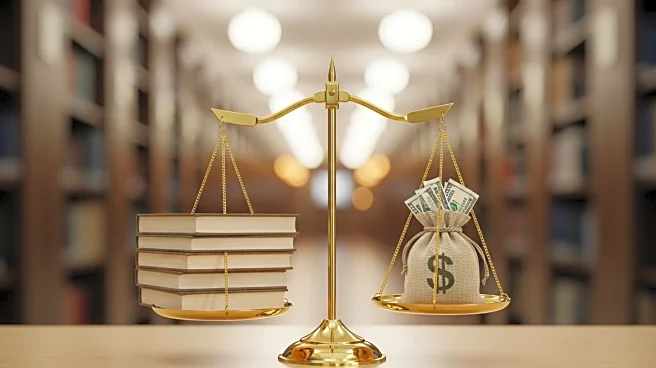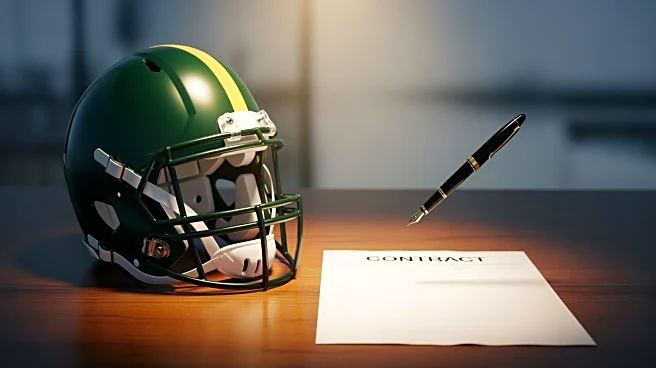What's Happening?
Anthropic, an artificial intelligence start-up, has agreed to pay $1.5 billion to settle a lawsuit filed by authors Andrea Bartz, Charles Graeber, and Kirk Wallace Johnson. The authors accused Anthropic of using their copyrighted works to train its AI models without permission. This settlement marks the largest payout in U.S. copyright case history. The lawsuit is part of a broader trend where copyright holders are challenging AI companies like Anthropic, OpenAI, Meta, and Microsoft over the use of copyrighted digital data. These companies argue that they are legally entitled to use public material without paying for it, as they do not reproduce the material in its entirety. However, authors, publishers, and artists have contested this claim, leading to multiple legal actions.
Why It's Important?
The settlement is significant as it sets a precedent for how AI companies might handle copyrighted material in the future. It could lead to more AI firms compensating rights holders for using their works, impacting the business models of companies relying on large datasets for AI training. This development may influence public policy and legal standards regarding intellectual property rights in the digital age. Authors and other content creators stand to benefit from potential licensing agreements, while AI companies may face increased operational costs and legal scrutiny.
What's Next?
Following this settlement, AI companies might seek to establish licensing agreements with copyright holders to avoid similar lawsuits. This could lead to a shift in how AI models are trained, with companies potentially acquiring copyrighted materials legally. Stakeholders such as publishers and artists may push for more stringent regulations to protect their intellectual property. The legal landscape for AI and copyright issues is likely to evolve, with potential implications for innovation and content creation.
Beyond the Headlines
The case highlights ethical considerations in AI development, particularly regarding the use of copyrighted material without consent. It raises questions about the balance between technological advancement and intellectual property rights. Long-term, this could influence cultural perceptions of AI and its role in society, as well as the responsibilities of tech companies in respecting creators' rights.









